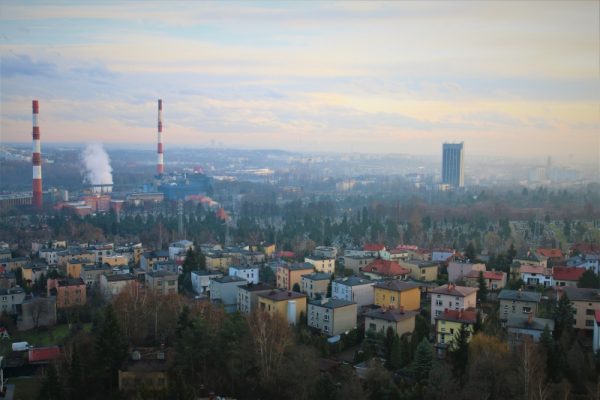The consortium which includes the University of Silesia in Katowice will receive funding for research infrastructure. „ACTRIS – Infrastructure for the study of aerosols, clouds and trace gases” will receive a grant of PLN 11,616,598.24 under Measure 4.2 Development of modern research infrastructure of the science sector of the Smart Growth 2014-2020 Operational Programme. The project, which involves in its development, among others, our university, has been included in the Polish Road Map for Research Infrastructure that covers strategic research initiatives. Their scientific potential might be incredibly important for Polish and European economy. The Ministry of Education and Science has selected the projects which can help solve global problems, such as: sustainable development and protection of the natural and human environment, energy security and access to raw materials, as well as the development of modern technologies.
The consortium includes: Institute of Geophysics of the Polish Academy of Sciences, University of Warsaw, University of Wrocław (the leader), Institute of Environmental Engineering of the Polish Academy of Sciences, Institute of Meteorology and Water Management – National Research Institute, Poznań University of Life Sciences and University of Silesia in Katowice. Assoc. Prof. Mariola Jabłońska, Professor of the University of Silesia and Director of University Laboratories for Atmosphere Control (ULKA) is the coordinator from the University of Silesia.
Integral scientific and research environment
ACTRIS is a pan-European infrastructure for research on aerosols, clouds and trace gases. ACTRIS Poland focuses on observation of aerosols, which are a poorly understood climate-forming factor and one of the components of smog, as well as on the study of clouds and interactions between aerosols and clouds
The European Research Infrastructure (ACTRIS IB) was established to provide high quality data on the so-called short-lived atmospheric components. ACTRIS IB is a response to an existing market demand. Various atmospheric processes are increasingly becoming a part of social and environmental challenges. They include: air quality, population health, sustainable development, climate change, and productivity of ecosystems. ACTRIS provides access to essential information for understanding atmospheric processes and bio-geo-chemical interactions between the atmosphere and different types of ecosystems.
One of the goals of IB ACTRIS-PL is to become part of the European structures of ACTRIS, which is an integral scientific and research environment providing technical support and an integrated database with services and visualisation tools using web-based technologies.
Research Infrastructure – IB ACTRIS-PL will become an integral part of the ACTRIS-EU infrastructure. Currently, the ACTRIS operations in Europe bring together more than 100 European partners from 22 countries, cooperating together in international consortia.
Project implementation
The project involves providing additional equipment and development of research centres in Wrocław, Rzecin, Racibórz, Sosnowiec, Zabrze and Strzyżów. In order to carry out the research tasks, the centres must be equipped with the necessary infrastructure, including: lidar stations (stationary and mobile), wind profiler, spectrometers, apparatus for measuring light scattering and absorption coefficients on aerosols (aethalometer and polar nephelometer), sun photometers, dust meters, ceilometers.
The main goals of the project include providing high quality data and increasing the availability of data on the temporal and spatial variability of aerosols in the atmosphere, as well as increasing knowledge in the following main areas:
- climate change,
- lower visibility,
- air quality problems,
- improvement of meteorological analysis,
- improvement of weather forecasts,
- acidification of precipitation and sediments,
- ocean biology,
- correct analysis and verification of satellite data.
Those measures directly correspond with the objectives of Priority Axis IV of the Smart Growth Operational Programme, including the objectives of Measure 4.2 of the programme, i.e:
- improving the quality of science and using the full potential of academic staff,
- ensuring that the Polish science sector is consistent with the European Research Area and that the quality of R&D is constantly being improved,
- creating an effective way of access to the infrastructure for companies and other interested entities.
In addition to scientific aspects, the ACTRIS infrastructure will also serve to strengthen the R&D potential in the areas of:
- public health and well-being, and environmental risks, by providing data on exposure to harmful atmospheric pollutants and data for modelling their spread;
- climate change, by providing a better understanding of the climate-forming role of aerosols, clouds and short-lived trace gases;
- electromobility and transport, by providing modelling data for the development of transport policy, including electromobility;
- safe and clean energy, by providing data on pollution for energy policy-making and data for short-term, highly verifiable solar and wind forecasts (nowcasts) for renewable energy;
- raising awareness of the impact of aerosols, clouds and trace gases on climate and health issues, by developing widespread access to powerful data sharing, analysis and presentation services;
- food security, sustainable agriculture and forestry, marine and inland water research and bioeconomy, indirectly through the interdisciplinary character of the project.
As part of the project, the University of Silesia will purchase a lidar (a laser scanner used, among other things, for determining vertical profile of the atmosphere). The mobile laboratory (a car) will be equipped with this apparatus. This is a key device from the perspective of adapting the ABTRIS-PL infrastructure to the requirements of the European network.
The total amount of recommended funding of all projects selected in the competition is PLN 1,128,375,940.66. Full list of beneficiaries is available at: www.poir.opi.org.pl/news/id/711.html.
ULKA research balloon flight, photo by Monika Jodłowska, Media Communication Centre






